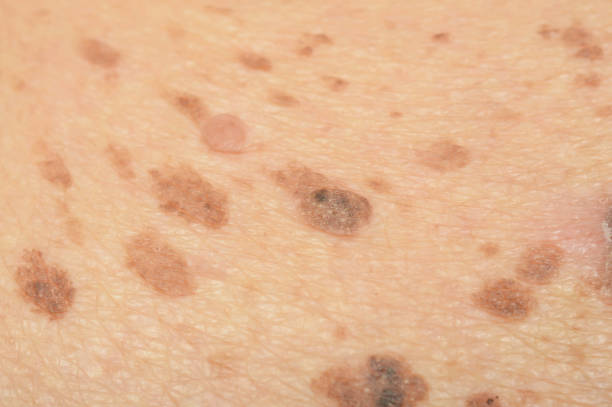Skin cancer is a disease that results from damaged skin cells or irregular growth of cells. Naturally, as skin cells grow old and die, new skin cells are created to replace them, but if anything alters this process, it may result in cancer. This disease can spread from the skin to other areas of the body if not treated on time; fortunately, it is curable if found in its early stages.
Types of Skin Cancer
The 3 main types of skin cancer include:
- Basal cell carcinomas: This type forms in the innermost part of the skin.
- Melanomas: This forms in the melanocytes (cells that produce melanin that gives skin its brown colour).
- Squamous cell carcinoma: This is usually found on the outer part of the skin.
Causes of Skin Cancer
The major cause of this disease is overexposure to sunlight. The ultraviolet rays from sunlight can damage the DNA in the skin and cause abnormal cells to form, especially when you constantly have blisters and sunburn. These abnormal cells rapidly grow in a disorganised manner and form a mass of cancer cells.
While this is the most commonly known cause of skin cancer, there are so many factors that can put you at risk of developing the disease, such as:
- Living in a sunny or high-altitude climate.
- Spending a considerable amount of time in the sun every day.
- Having a family history of cancer.
- Having light coloured eyes, red or blond hair and fair skin.
- If you get easily sunburned and have a constant history of sunburns.
- Tan or using tan beds.
- Having many moles on your skin.
- If you have actinic keratosis.
- Exposure to ultraviolet light therapy for treating any skin condition, such as psoriasis.
- If you take medications that weaken or suppress your immune system.
- If you have had an organ transplant.
Symptoms of Skin Cancer
The most common sign of skin cancer is usually changes on the skin, which can be a change in an existing mole or a new growth. Some other symptoms include:
- Some areas on the skin start to look like scars.
- A new mole or an existing mole that bleeds or changes shape, size or colour.
- A rough, scaly lesion that might bleed, itch or become crusty.
- A pearly or waxy bump on the face, neck, or ears.
- Sores that bleed often look crusty or have a depression in the middle.
- A flat, red, pink or brown-coloured bump or patch.
- Wounds or sores that won’t heal or usually resurface after healing.
Treatment
Treatment for skin cancers depends on the location, size, stage and type of the tumour. Your doctor will consider these things before recommending any of the following options.
- Excisional surgery to cut out the growth and healthy skin surrounding it.
- Cryosurgery can be used to freeze the growth using liquid nitrogen and destroy the tissue as it thaws.
- Curettage and electrodesiccation to scrape away cancer cells using a long spoon-shaped blade and the remaining cells are burned by an electric needle.
- Mohs surgery to remove the growth by layers until no irregular cells are left.
- Radiation uses high-energy beams to kill cancer cells.
- Photodynamic therapy which involves the use of laser light and some drugs to destroy the cancer cells.
- Immunotherapy to stimulate your immune system to kill the cancer cells.
- Chemotherapy can be applied topically, orally or intravenously to kill cancer cells.
- Biological therapy can also be used to stimulate your immune system to fight cancer cells.



